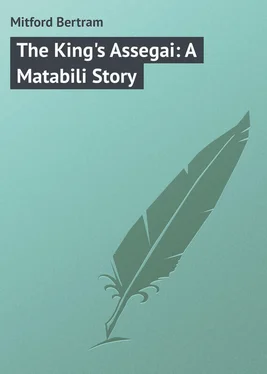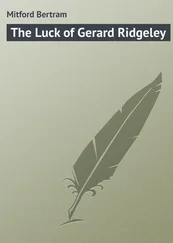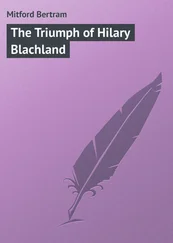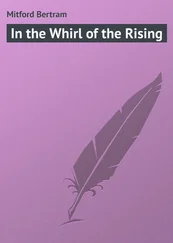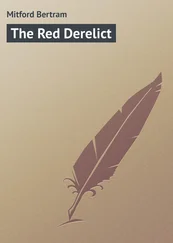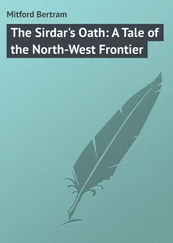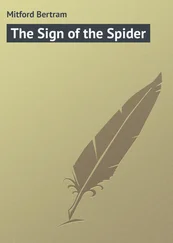“An immense chorus of bonga went up from the army when I had spoken. All were eager to arrive at the scene of the victory. Then the King bade me withdraw, which I was not sorry to do, for I was tired and fasting.
“You may have observed, Nkose , that my news was of victory alone; that no questions were asked as to our losses, who had been killed or who had not. It is not the custom of us Zulus, on these occasions, to mix up good and ill news. It was sufficient that the King’s enemies were stamped out. The relatives of the slain could hold ceremonies of mourning afterwards if they wished, but that was a private undertaking. Wherefore I only announced to the ears of the nation at large that we were victorious.
“And then, as we drew near to the scene of our fierce and bloody conflict, what remained of the impi which had gone out against the Basutu kraals drew near to hail the King. It had gone out a full regiment – as we were in those days about fifteen hundred men – but little more than half were left alive; for, as I have said, the Basutu were numerous, and had fought bravely. Still, as our warriors advanced in a column with waving plumes, and beating time with shield and assegai to the thunder of a mighty war-song, and the marks of the recent battle upon them, my heart swelled within me as I thought that I had borne a man’s part that day with these.
“‘Go forward, Untúswa,’ said the King, who had caught sight of me in the ranks. ‘Go forward and join the fighters, you who have fought so well this day. Your place is among them.’
“I thundered out the royal praises, and darted forth to meet those who were approaching; and falling into my place, we advanced, singing:
“‘Hail, King, Father of a new nation!
We, thy children, have smoothed a way before thee.
Thine enemies – where are they?
Their dwellings – where are they?
As the smoke which climbeth to heaven
their might is broken and shattered.
Might? Ha! ha! No might had these;
like blades of the grass when trampled,
Down went their bravest before the might of the Elephant,
Beneath the foot of the Elephant, whose tread shaketh the world.
Hail, King! Father! the chief and the maker of nations!’
“Thus sang the warriors, their voices roaring like the thunder of the heavens. Then, having prostrated ourselves, we rose, and wheeling up we fell into rank before the whole army escorting the King, and the march was continued until we were some distance beyond the smoking ruins of the Basutu kraals, for we might not halt upon the site of the battle, lest those who had borne no part in shedding it might be denied by the blood that had flowed. Here our vast camp was pitched, and by the light of hundreds of fires we who had fought, having gone through the ceremony of purification at the hands of the izanusi , were paraded before the King in full war array, and such of us as could establish a claim were allowed to perform the Tyay’igama , or the ‘calling by name,’ dance.
“This custom, you must know, Nkose , is one which consists of warriors who have performed deeds of distinction during the recent battle being pointed at by their commanders and called forward out of the ranks to dance before the King, while narrating their claims to notice for especial valour – who they have killed and how it has been done. They dance and leap with a quickness and to a height that would astonish you white people, springing from the earth more than their own height in the air, clashing their shields with both feet while leaping, and so on – the while telling of their deeds. It is arranged with the indunas in command as to who shall be allowed so to claim notice, and Gungana had readily accorded me a first place.
“Ha! that night! It was a sight to live in a man’s memory. By the red light of a thousand huge fires there was assembled the whole might of a nation, of a new nation, of a nation of warriors. The King sat in the midst of his indunas , an open space before him. On either side stretched a monster crescent of armed men, the glint of their spears, the sheen of their great hide shields, flickering in the wavy glow. Up the middle of this space our impi advanced, singing a battle-song, even the war-song of Umzilikazi:
“‘Yaingahlabi leyo’nkunzi!
Конец ознакомительного фрагмента.
Текст предоставлен ООО «ЛитРес».
Прочитайте эту книгу целиком, купив полную легальную версию на ЛитРес.
Безопасно оплатить книгу можно банковской картой Visa, MasterCard, Maestro, со счета мобильного телефона, с платежного терминала, в салоне МТС или Связной, через PayPal, WebMoney, Яндекс.Деньги, QIWI Кошелек, бонусными картами или другим удобным Вам способом.
